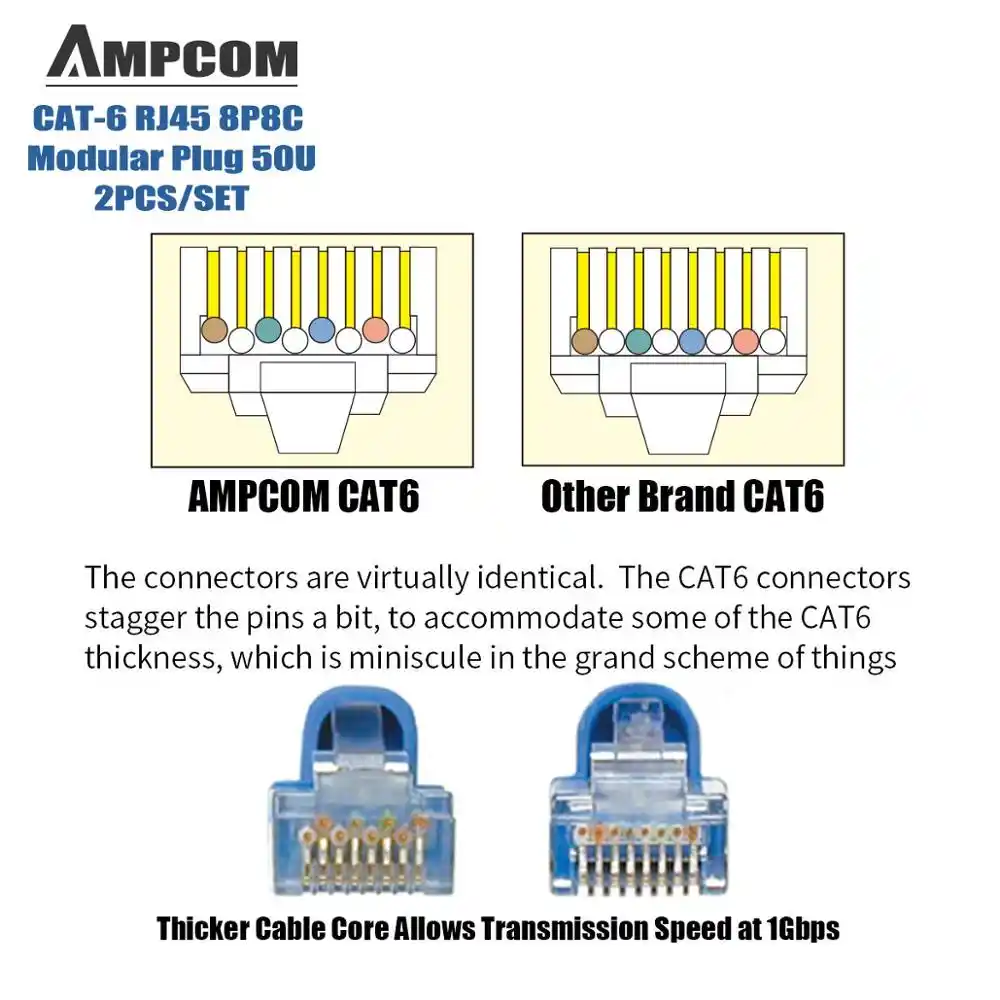A cat6 cable is similar to a cat5 ethernet cable it consists of four pairs of twisted copper wire.
Cat6 cable thickness.
Cat6 and cat6a cables are more expensive than cat5e cables with the cost depending primarily on length.
A cat6 cable has a bandwidth capacity of 250 mhz for example and it offers you speeds of up to 10 gbps.
Cable twisting length is not standardized but typically there are 1 5 2 twists per cm in cat 5 e and 2 twists per cm in cat 6.
A 23awg cable is 0 57mm wide while a 24awg cable is 0 52mm wide.
The outside diameter of cat6a f utp can be as large as 0 354 compared to 0 265 0 30 for cat6a f utp and 0 21 9 24 for cat6.
It s the next iteration of the networking cables which utilizes a thick gauge plastic casing to.
Cat6a utp is significantly larger than cat6 and cat6a f utp cable because it is designed with more interior space between the pairs to minimize anext.
Cat 6 has to meet more stringent specifications for crosstalk and system noise than cat 5 and cat 5e.
Then comes the more advanced cat6 cables which are more reliable and faster than the cat5 and cat5e configuration cables.
Cat 6 supports 10 gigabit ethernet only up to 164 feet of cable length.
By doing so resistance is automatically reduced over the cable.
For example a 25 ft unshielded cat6 cable goes for 8 on amazon while a 25 ft shielded cat6a goes for 11.
To reduce resistance and allow for a better flow of electrons the diameter of the cable s conductor must be increased.
Category 6 cable cat 6 is a standardized twisted pair cable for ethernet and other network physical layers that is backward compatible with the category 5 5e and category 3 cable standards.
While both the specification plug into the same ports cat6 adheres to the new industry standard networking specifications.
There are two main physical differences between cat 5 and cat 6 cables the number of twists per cm in the wire and sheath thickness.
As a means of future proofing your network cat6 is generally a better choice and worth the small premium in price.
The cost differences between cat6 and cat6a cables are relatively small around 20 35.
Cat6 cables also called category 6 or cat 6 cables provide lower crosstalk a higher signal to noise ratio and are suitable for 10gbase t 10 gigabit ethernet while cat5e cables support only up to 1000base t gigabit ethernet.
The category 6 augmented cable standard or cat 6a was created to further improve the performance of cat 6 ethernet cables using cat 6a enables 10 gigabit ethernet data rates over a single cable run up to 328 feet.
Notice the lower the gauge the higher the thickness.
However it provides you with much more functionality.

